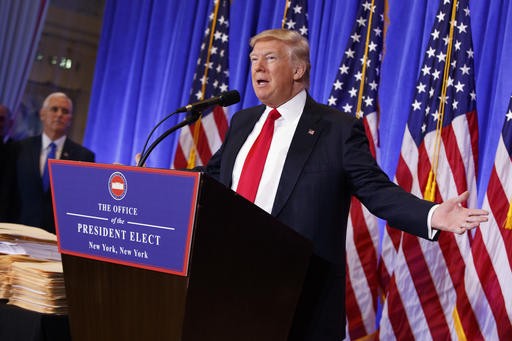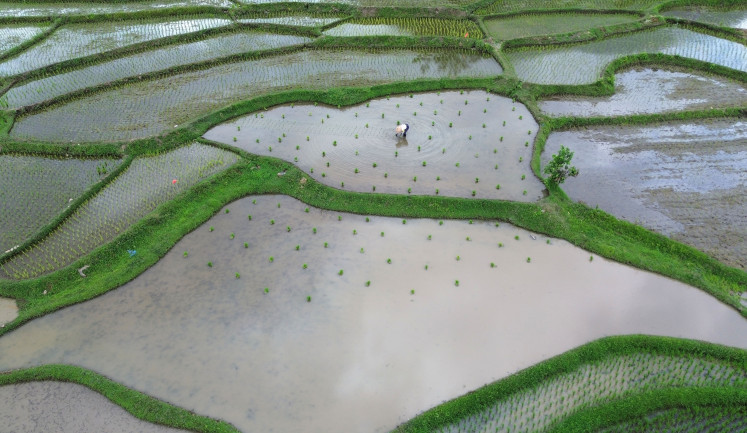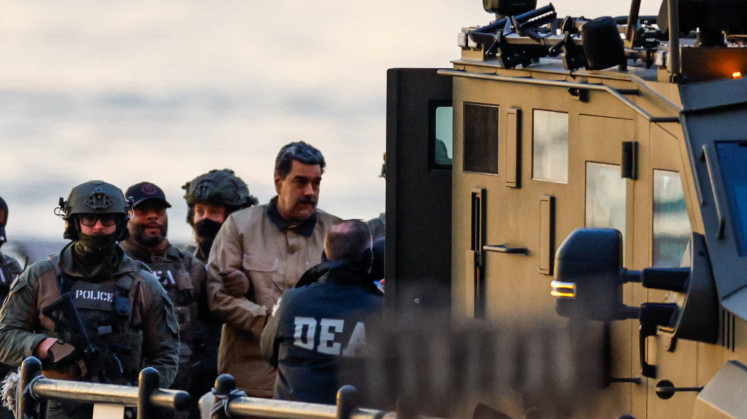Popular Reads
Top Results
Can't find what you're looking for?
View all search resultsPopular Reads
Top Results
Can't find what you're looking for?
View all search resultsTrump's America first policy: Perception and risk of misperception
In general, many observers have mentioned President Trump’s inauguration speech as a much more nationalistic and populist policy trajectory, intended to secure US interests first. In Trump’s own word: “From this day forward, it's going to be only America first, America first."
Change text size
Gift Premium Articles
to Anyone
I
nauguration speeches in the United States matter as it portrays the way in which the President as one of the world's leaders projects the pathways that it would take on strategic issues. As history shows, notable speeches such as Roosevelt’s call upon the US to become a great power in 1905 or Kennedy’s pledge for peace in 1961 had proven to become a solid basis for future policy trajectory analysis. Indeed, inauguration speeches offer the world a glimpse on a US leadership's foreign policy trajectory.
Realizing the importance of the particular momentum, one can assume that hundreds of country representatives rushed to write reports and policy recommendations on President Donald J. Trump’s inauguration speech. Each report and policy advice created will try very hard to dissect and analyze every policy implication the speech may impact on their respective country's dynamics with the United States. Each report will also have to take into account current international dynamics, be it the uncertain security situation in Syria, European surge of nationalism, or the climate change question, all have their dimension and perception with regards to the US’ current leader’s policy options.
In general, many observers have mentioned President Trump’s inauguration speech as a much more nationalistic and populist policy trajectory, intended to secure US interests first. In Trump’s own word: “From this day forward, it's going to be only America first, America first”, a notion that America will now not be hiding to declare publicly that it will put its interest first, a rather different approach from the past administration’s international cooperation and global interest goals.
As a region in which the US can be considered as a hegemonic power, the Asia-Pacific region has a lot at stakes in perceiving President Trump’s future policy trajectories. Undeniably, US presence in the region has an impact on tilting the regional balance and puts emerging powers in check. The possibility of a power vacuum in the region has been voiced numerous times, especially with the US’ current shifts in military assets. In lieu with these developments, the Japanese Prime Minister Shinzo Abe in his congratulatory message to President Trump iterated the urgency of taking note the increasing severity of the security environment in the Asia-Pacific region.
PM Abe's message of concern is not without reasoning. In Trump's words in his speech: “We have defended other nations' borders while refusing to defend our own.” Aside from its clear reference towards the proposed US-Mexican border enforcement (which may or may not include the US building a massive wall and have the Mexican Government pay for it), the statement can also be interpreted as a clear message toward the US allies' burden-sharing problem. As Japan and South Korea relies heavily on the US’ security and nuclear umbrella, Trump's past suggestion of those two countries defending themselves (and even including a nuclear weapon trajectory arming option to be approved by the US) should be a concern given the region’s current dynamic.
The Asia-Pacific region is also a home for emerging world powers, and one of them is even being said will soon take over world leadership responsibilities on several strategic issues. As a Chinese Foreign Ministry senior official recently mentioned, China had no intention of seeking a leadership role, but would not deny its responsibilities once the front-runners stepped back. Arguably, China is already at the current forefront of the global climate change issue. As the new US administration deleted all climate change references from the government's website, China stepped up its game and allocated resources to improve its status as a power player on climate change issues. As radical as it sounds, this fact shows that policies can radically change even if in a previous time those policies were bolstered as a vital national interest. Arguably, the same is applicable toward security alliances.
There are at least three strategic issues in which the new administration should be taking into account when formulating a new policy framework for Asia-Pacific security.
First, that the US alliance has been perceived as one of the cornerstones for the region's balance of power. A perception that the US will let their most important ally in the region, Japan, and South Korea, to be more active in defending itself and develop its military strength will undeniably create rifts in the Asia-Pacific’s current dynamics, especially by taking into account the historical animosity and the webs of border disputes happening between the countries at play.
Secondly, that the region’s maritime security dimension has always been perceived as a US strategic interest. A perception that the US will put fewer resources in the region’s maritime security problem will put the dynamics of maritime arms development at risk. The problem is even more worrying; by taking into account current dynamics in the South China Sea problem and China's ongoing aggressive military expansion maneuvers.
Lastly, that regional organization such as ASEAN relied heavily on US involvement to keep regional powers in check. A perception that the US will be less involved will arguably have an impact on the organization's cohesion and decision-making process on urgent issues. As has been showed by Manila’s recent maneuvers between superpowers, this is also a crucial dimension of the region needed to be taken care of.
In conclusion, we can argue that President Trump's inauguration speech may provide a perception and misperception of risks to the Asia-Pacific’s future security dynamics. As foreign policy is a game of perception and misperception, possibilities of foreign policy hints (such as in the famed President Trump’s series of tweets), will only add to the risk of misperception. Undeniably, time is ticking, and the new US administration will have to race with the possibility of misperception as consequences for Asia Pacific countries.
***
The write is a master’s candidate in Science and Security, at the War Studies Department, King’s College London, United Kingdom, through the Chevening Scholarship. The views expressed are his own.
---------------
We are looking for information, opinions, and in-depth analysis from experts or scholars in a variety of fields. We choose articles based on facts or opinions about general news, as well as quality analysis and commentary about Indonesia or international events. Send your piece to community@jakpost.com. For more information click here.










